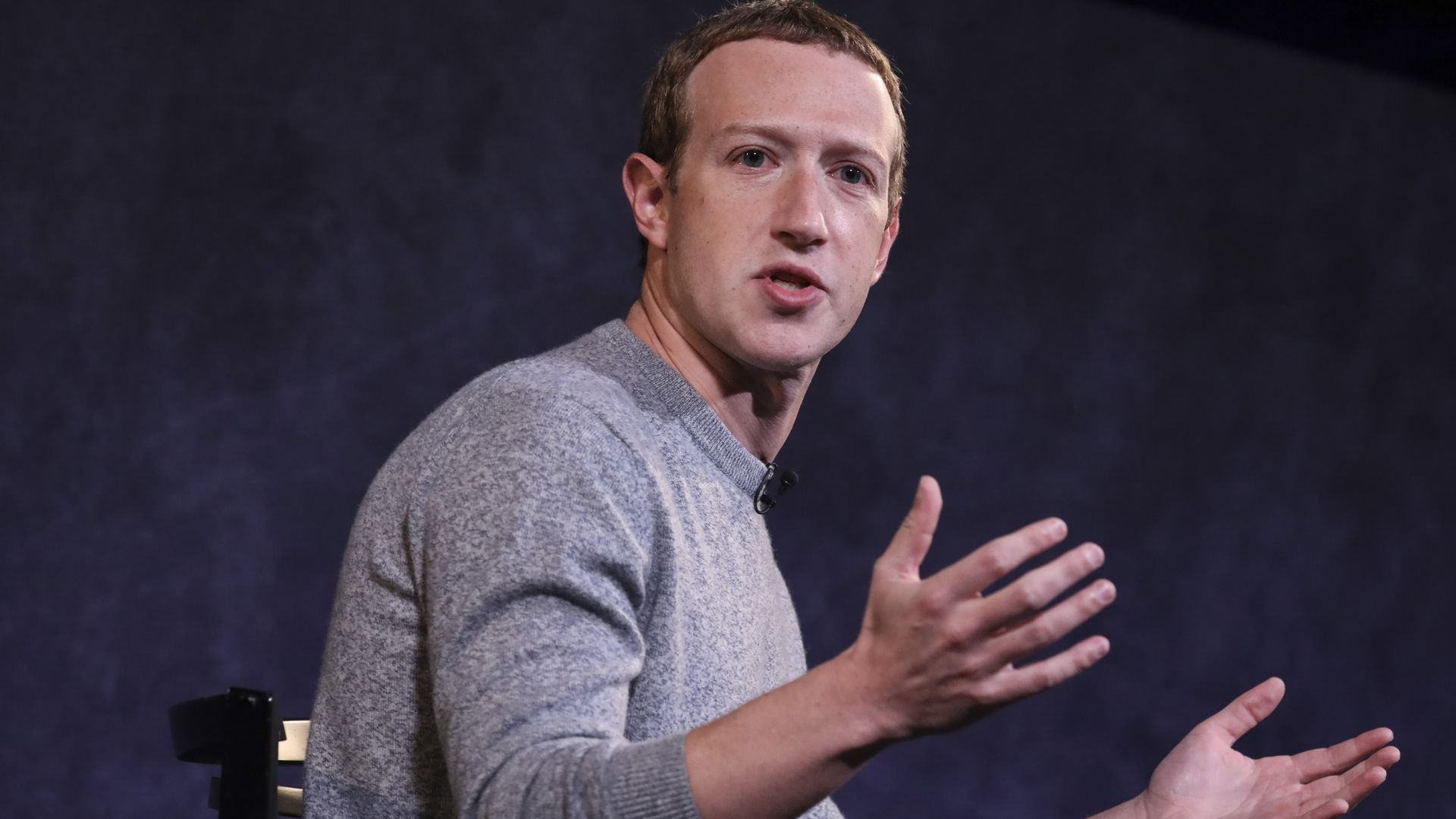Facebook lays out policy banning census misinformation
Add Axios as your preferred source to
see more of our stories on Google.

Facebook CEO Mark Zuckerberg speaks at an October event. Photo: Drew Angerer/Getty Images
Facebook on Thursday said it's banning posts and ads that discourage people from taking part in the 2020 Census or mislead them about how to do it, a move the company promised was in the works earlier this year.
Why it matters: Advocacy groups have long warned that misinformation can be used to depress census participation, skewing results and leading to under-representation for immigrants, people of color and other marginalized groups when the census is later used to draw political districts.
Driving the news: Per a blog post from Kevin Martin, Facebook's top U.S. policy exec, Facebook is prohibiting:
- "Misrepresentation of the dates, locations, times and methods for census participation;
- Misrepresentation of who can participate in the census and what information and/or materials must be provided in order to participate;
- Content stating that census participation may or will result in law enforcement consequences;
- Misrepresentation of government involvement in the census, including that an individual’s census information will be shared with another government agency; and
- Calls for coordinated interference that would affect an individual’s ability to participate in the census, enforcement of which often requires additional information and context."
Details: That last point aims to stop people from using Facebook to do things like rally others to take jobs as census takers with the express aim of undercounting immigrants, a company spokesperson said, adding that Facebook would likely need to work with a "trusted partner" like the Census Bureau to identify and remove that sort of material.
- The company will work directly with the Census Bureau and local officials to enforce its policy.
- Facebook is also banning ads that "portray census participation as useless or meaningless or advise people not to participate in the census," Martin said in the blog post.
The big picture: The census poses a vital systems test for Facebook and other social media companies that failed to keep misinformation from flooding their platforms around the 2016 presidential election. And it's a trial run for what lies in store as the 2020 election heats up.
